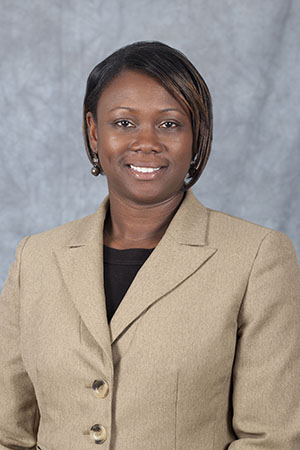Health Advisory Council Newsletter | 2019 Q1 | Member Q&A
 Kimberly A. Rawlings
Kimberly A. Rawlings
Deputy Director, Office of Communications
Food and Drug Administration/Center for Drug Evaluation and Research
Q. How long have you been at FDA’s Center for Drug Evaluation and Research (CDER), and what do you love most about your job?
A. I have worked for FDA’s Center for Drug Evaluation and Research, Office of Communications (OCOMM), for almost 10 years, and I’ve been with FDA for 20 years working in other positions. CDER’s mission is to protect and promote public health by helping to ensure the availability of safe, effective, high-quality drugs. OCOMM supports the mission through our education and outreach programs to stakeholders. Informing and educating the public helps them make informed decisions about CDER-regulated products. Working at FDA/CDER is rewarding and fulfilling. I enjoy communicating about a variety of scientific and regulatory issues. We communicate through a wide range of formats, including education campaigns, statements, webinars, videos, web content, and social media.
Q. What are the biggest challenges and opportunities facing FDA/CDER today?
A. In the Office of Communications, we support all of CDER’s programs. This requires thinking strategically about the message and the platform for disseminating that message to the target audience. The biggest challenge is translating complex scientific and regulatory information into messages for the general public or specific audiences.
Q. What FDA/CDER initiatives would you like to share with the Council?
A. There are several multi-media educational/outreach campaigns. The generic medicine campaign educates consumers and healthcare providers, in English and Spanish, about the safety, effectiveness and quality of generics. Biosimilars continue to generate interest from our stakeholders also. The biosimilar campaign promotes an understanding of biosimilars and interchangeable products for patients and providers. In addition, the BeSafeRx:Know Your Online Pharmacy campaign continues to raise awareness of the dangers of buying prescription medicines from fake online pharmacies.
Most recently, OCOMM has focused communication on the ongoing recalls of angiotensin II receptor blockers (ARBs), a class of prescription drugs to help patients with heart conditions or those who are at risk of stroke. It’s important that patients understand the risk of exposure to cancer is much lower than your risk of a heart-related problem if you don’t take your medicine.
Q. What does FDA/CDER value about membership in NCL’s Health Advisory Council?
A. As a non-voting member of NCL’s Health Advisory Council, I appreciate the opportunity to meet and collaborate with other organizations that align with FDA’s public health mission. The Council’s collegial and supportive culture enables knowledge and resources to be shared among the membership. This, in turn, widens our reach to consumers about important issues that impact their everyday life.












